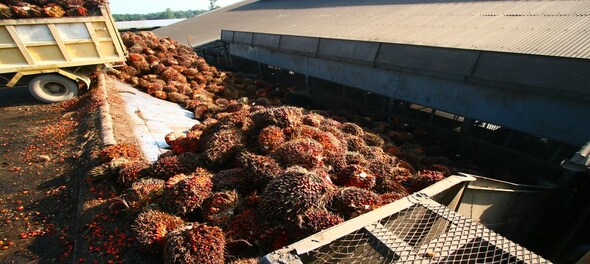
Palm oil, the world’s most consumed cooking oil, is likely to slide down more than 20 percent to 3,000 ringgit ($673) a tonne by September as a result of increased supplies in Indonesia, said veteran analyst Dorab Mistry.
Prices of Palm Oil have been going down following the lifting of palm oil exports by Indonesia. Malaysian palm oil futures have slumped 43 percent to an intraday low of 3,489 ringgit ($783.16) a tonne since Indonesia ended its export ban on May 19.
The drop is going to come as a relief for FMCG companies such as Hindustan Unilever (HUL), Godrej Consumer Products, Britannia, and Nestle as palm oil forms a major component in consumer goods.
Also read:
How will the FMCG companies be impacted?
Experts believe the drop is going to have a positive impact on the companies. “It’s going to be beneficial to the companies from a margin point of view,” said Varun Singh, Lead analyst, IDBI Capital Markets and Securities.
Indian edible oil producers have expected to build back margins soon as palm oil prices hit a six-month low.
Commenting on this Ritesh Tiwari, Chief Financial Officer, HUL told CNBC-TV18 that palm oil has come off from its peak, but certain commodities like milk extracts, barley, and coffee are still inflated. If more commodities cool off then it is expected that we can build back margins from the December quarter.
Although companies are expecting to gain the margins back which were lost due to the hike in the prices earlier due to the increase in demand after the pandemic, the Russia-Ukraine war crisis, and the ban by Indonesia, it is unlikely that premium FMCG companies will reverse price hikes imposed during this period.
“No one is going to reduce prices as the incremental margin benefits are likely to be invested into advertisement and promotions, from the perspective of investors this is going to be a positive impact. Better earnings updates will only happen after the Q1FY23 results are out,” said Singh.
Why is palm oil so important?
Palm oil is used in everything from food products to detergents to cosmetics, hence its prices affect the prices of many goods.
According to Mistry, a further slump in the palm may help ease global food inflation, which peaked in May-June.
Experts also believe that Indian edible oil manufacturers will be able to pass on the benefits of softer global prices to consumers as Indonesia has lifted its export levy on palm oil products until August 31.
“With Indonesia lifting up the ban and the Indian government pushing enterprises to reduce the maximum retail price of edible oils by Rs 15, palm prices are going to stay consolidated,” said finance advisor, Manoj Kumar Jain.
The NSE Nifty FMCG index is up 10 percent year-to-date (YTD). In five days HUL stocks have gone up by over 3 percent. While Britannia went up over 1 percent, Godrej Consumer stocks have fallen over 1 percent.
Also read: FMCG stocks go high as crude prices go down
First Published: Jul 19, 2022 6:28 PM IST
Check out our in-depth Market Coverage, Business News & get real-time Stock Market Updates on CNBC-TV18. Also, Watch our channels CNBC-TV18, CNBC Awaaz and CNBC Bajar Live on-the-go!


2024 Lok Sabha elections: Gurugram Police issues heatwave advisory for voters
Apr 20, 2024 6:08 PM
2024 Lok Sabha elections: Unable to find your voter ID? Here are alternative docs to cast vote
Apr 20, 2024 5:48 PM
Lok Sabha elections 2024: All you need to know about EVMs and VVPAT; how they work
Apr 20, 2024 1:24 PM
Odisha Lok Sabha elections: Schedule, total seats, Congress candidates and more
Apr 20, 2024 11:39 AM

